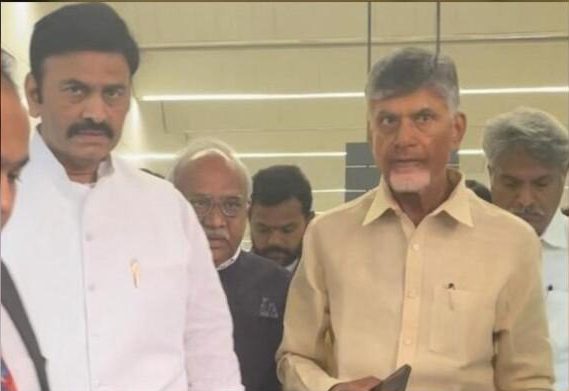In the wake of TDP chief Chandrababu Naidu’s release from interim bail, the TDP has embarked on a political strategy to engage citizens across the State. However, concerns are escalating as reports emerge of party cadre allegedly trespassing into homes and coercively gathering personal information, posing both a threat to individual safety and potential legal ramifications.
TDP leaders and cadre are conducting door-to-door visits under the guise of voter verification, collecting sensitive details such as voter names, voter card numbers, caste, occupation, family member details, and mobile numbers. Shockingly, this information is being instantly uploaded to the TDP Manifesto website, whose server is located in the United Kingdom.
The apparent move of citizens’ personal data to a foreign server without consent has sparked strong objections, with critics contending that TDP’s actions jeopardise the privacy and security of Andhra Pradesh residents.
Allegations from political circles suggest that TDP’s motives may be driven by a desire to exploit the personal information of citizens for political gains.
Notably, incidents of forceful and unauthorised data collection have been reported, including the improper acquisition of One Time Passwords (OTPs). The TDP’s actions have led to clashes, such as the recent altercation in Rajampet constituency, where TDP workers reportedly resorted to violence when confronted by locals objecting to the collection of OTPs.
Despite public disinterest in Chandrababu Naidu’s initiatives, the TDP continues to gather information in the name of voter verification. Critics argue that the purported Naidu’s surety -‘Bhavishatu Guarantee’ programme is a smokescreen, and TDP activists are misleading citizens into believing they have been selected for schemes announced by Chandrababu.
YSRCP Legal Cell State president M Manohar Reddy has condemned the alleged collection of citizens’ personal information, stating that it constitutes a serious offense against privacy. Reddy asserts that the YSRCP legal cell will take legal action under various sections, invoking the People’s Representative Act, Election Code of Conduct, and the IPC to address the matter.
TDP coercing citizens into sharing personal info?




